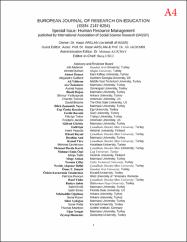Corruption, banking sector, and stock market development: A panel data analysis

Göster/
Erişim
info:eu-repo/semantics/restrictedAccessTarih
2013Erişim
info:eu-repo/semantics/restrictedAccessÜst veri
Tüm öğe kaydını gösterÖzet
Studying the relation between corruption and financial factors and examining its consequences for financial system have attracted many researchers in recent years. This study examines the role of corruption and banking sector development on stock market development using a panel data of 42 emerging economies for the period 1996 to 2011. Our findings suggest that there exists a negative relation between level of corruption and financial system improvement. We observe a positive relation between banking sector development and stock market development in emerging market countries. This article also shows that macroeconomic factors such as income level, interest rate, private capital flows, stock market liquidity, investment and inflation are important determinants of stock market development in emerging market countries. In this study, effects of corruption level on stock market is examined and also it is examined that how banking sector reacting to the changes at corruption level. For this purpose corruption level and sector development indicator are integrated and added to the model. This helps us not only to examine corruption level or banking sector development on stock market, but also examine the effect of these two variables together. A strong negative relationship between interaction term and stock market development is found. This result shows that devastating effects of corruption in these countries is more important than the positive effects of the development of the banking sector. The finding also indicates even though the banking sector is developed, the level of corruption effect adversely stock market development. The results are generally in agreement with the theoretical and empirical literature

















